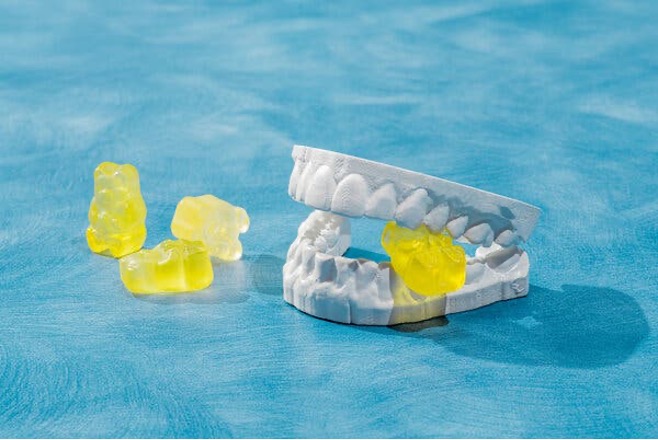While we often associate dental health with brushing and flossing, the role of our diet in maintaining a healthy smile is often underestimated.
What we eat significantly impacts the condition of our teeth and gums, influencing our overall oral well-being.
In this issue, we discuss the relationship between your diet and dental health.
- Sugar Addiction: We have heard it before, but we must repeat it—excessive sugar consumption is a primary contributor to tooth decay. Sugars fuel the production of acid by bacteria in our mouths, eroding tooth enamel over time. Cutting down on sugary snacks and beverages is a fundamental step toward preserving your teeth. Making brushing your teeth the last act you do before bedtime goes a long way in preventing tooth decay.
- Calcium and Vitamin D for Strong Teeth: A diet rich in calcium and vitamin D is essential for maintaining strong teeth and bones. Dairy products like milk, yogurt, and cheese, along with leafy greens and fortified foods, contribute to the strength and mineral density of your teeth. These nutrients are crucial for preventing cavities and supporting overall oral health.
- Crunchy Fruits and Vegetables as Natural Tooth Cleaners: Fruits and vegetables with a high water content, such as apples, carrots, and celery, act as natural tooth cleaners. Their crunchy texture stimulates saliva production, which helps neutralize acids and cleanses the mouth. Additionally, the fiber in these foods can help scrub away plaque, promoting healthier gums.
- The Importance of Proper Hydration: Staying hydrated is not only beneficial for your overall health but also for your oral well-being. Water helps wash away food particles, bacteria, and acids, reducing the risk of cavities and promoting a moist environment in the mouth that is unfavorable for bacteria that cause tooth decay.
- Acidic Foods and Beverages: While some acidic foods like citrus fruits and tomatoes offer essential nutrients, excessive consumption can erode tooth enamel. It’s important to balance acidic foods with those that are less acidic and to avoid brushing immediately after consuming acidic items, as this can exacerbate enamel wear.
- Limiting Starchy Foods: Starchy foods like bread, crackers, and chips can contribute to plaque formation. When broken down, these starches turn into sugars, providing a feast for bacteria in the mouth. Moderation and proper oral hygiene practices are key to minimizing the impact of starchy foods on dental health.
In conclusion, understanding the impact of diet on your dental health is a vital step toward maintaining a vibrant and healthy smile.
Adopting a balanced diet that include healthy foods, limiting sugars and acids, and staying properly hydrated can significantly contribute to preventing dental issues. Remember, it’s not just about what you brush with; it’s also about what you put on your plate. Embrace a diet that supports your oral health, and your smile will thank you for years to come.
Dr. Kendal V. O. Major is Founder and CEO of Center for Specialized Dentistry which is a comprehensive family dental practice operating in Nassau. He is the first Bahamian Specialist in gum diseases and dental implants since 1989. He also is a certified Fast braces provider, having attained Mastership status. His practice is located at 89 Collins Avenue, Nassau at (242)325-5165 or [email protected].

Harmful bacteria break down sugars and turn them into acids resulting in cavities

Assortment of fruits and nuts help to make a balanced meal

Good protein like Salmon with a mixture of vegetables





